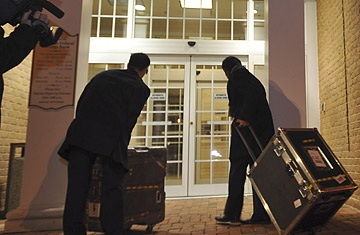
New estimates suggest as many as 1,000 banks may close.
How many banks will fail in the U.S. over the next year as the recession deepens? Answering that is like trying to guess whether a poker player will draw an ace on any given hand. Someone may have a big computer program that can find that number, but like most statistics. It is right until it is not.
According to Reuters, there are over 8,300 FDIC-insured banks in America. Last August, dour economist Nouriel Roubini told Barron's that 1,400 banks in the U.S. would eventually fail. That was long before almost anyone had a sense of how tremendously damaging the recession would be.
Recently, research firm RBC Capital Markets revised its estimate for bank failures from 200 to 300 over the next three years to 1,000. RBC said it based its forecast on talks with industry experts and the amount of assets on which banks are not collecting interest as a percentage of tangible capital and loss reserves. (See pictures of the Top 10 scared traders.)
What is disquieting about the RBC figure is not just how large it is. More alarming is that the size of the revision is so big. How could 700 banks be added to the list so quickly? It is hard to say whether it should shake investor confidence in RBC projections or the strength of bank balance sheets.
One of the signs of a real panic is that the people in the midst of it to some extent lose their minds. They are robbed of their ability to reason and see things clearly. They lose the compass they may have had. Even the analytic ability of "experts" is compromised, so the spreads among forecasts get very broad as things get worse. It might be of some comfort that all analysts think that 555 banks will fail in the next 24 months. Instead, some put the number at 200 and others at 1,400. The facts at the center of the analytic process change so fast that even the well-trained experts cannot keep up with and integrate the constantly changing information, in order to offer consistent predictions.
A number of writers in the media have noticed that people have become numb to the negative information around them. The focus of the individual has moved inward to his own economic survival. Attaching that to some reference point in the outside world becomes too painful when all of the news is alarming.
Many people, however, are willing to look at the economy, no matter how bad it is, in the hope of taking away some clue about their own financial futures. Mostly, they are finding that they are out of luck. The analysis they would like to have is so confusing and contradictory that it is nearly useless. Bank failure rates are only one of the issues that confound people, and they do not to be confounded more than they already are.
— Douglas A. McIntyre
Find out 10 things to do with your money.
For constant business updates, go to 24/7wallst.com.
